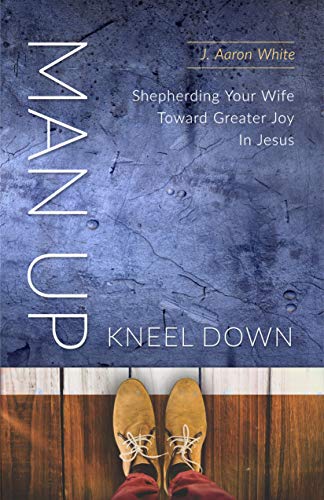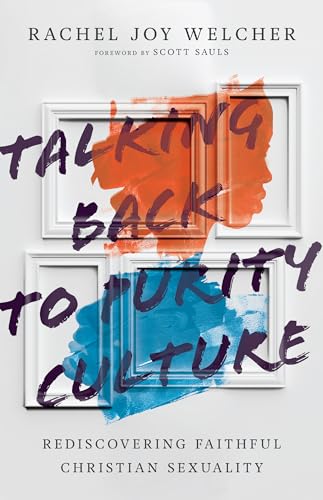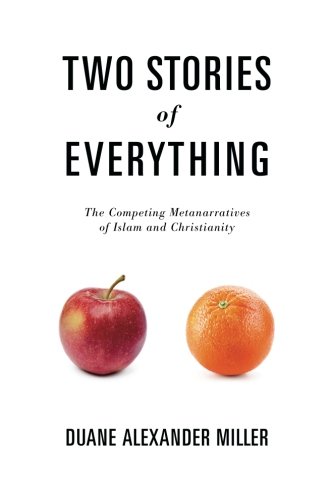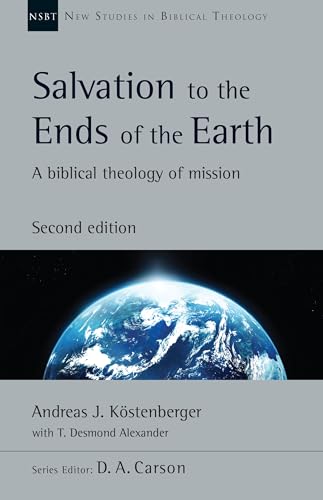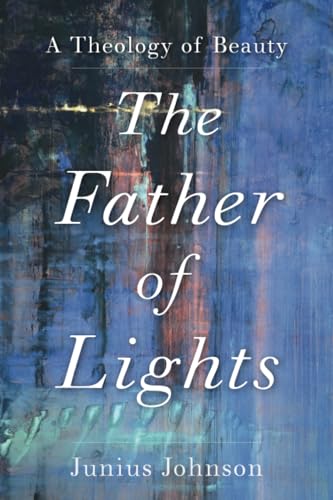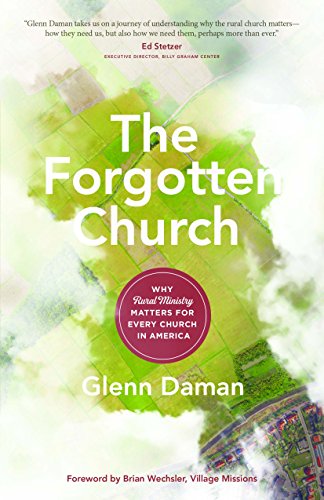Man Up, Kneel Down: Shepherding Your Wife Toward Greater Joy in Jesus
Written by J. Aaron White Reviewed By Geoffrey LinMy wife and I run the marriage ministry in our church, and so it was with some eagerness that I sat down to read Aaron White’s new book, Man Up, Kneel Down: Shepherding your Wife Toward Greater Joy in Jesus. Comprised of thirteen short chapters, it’s a passionate and practical exhortation from a husband to husbands to live out the gospel in their marriages. There are simple, easy-to-remember topics—like “Protect Her,” “Lead Her,” “Love Her,” and “Strengthen Her”—and each chapter concludes with a small (read “manageable”!) number of application questions, and, perhaps best of all, a model responsive prayer for husbands to pray.
There is much to appreciate about this book: it is generally well-balanced, combining both incisive rebuke and optimistic encouragement; it is easily digestible while also being profoundly insightful at times; and some of the chapters are notable for addressing rarely-treated topics—“Cherish Her” and “Prepare Her” (for eternity with Christ) are particularly moving. White’s concluding prayer at the end of chapter 13 is superb:
I long for my dear wife to face death with courage and the eager expectation that she will, by your grace alone, enter into the joy of her Master. Lord, please grant me the grace to run my own race toward heaven while urging her to follow me home to glory. If you should sovereignly choose to take her before me, give me the strength to shepherd her and point her to Christ until her last breath. In Christ’s name, Amen. (p. 147)
Overall, Man Up, Kneel Down is a thought-provoking attempt to show how the theology of God’s grace shapes the authentically Christian marriage. It will appeal to husbands at any stage of marriage with its winsomeness, relevant illustrations, and non-guilt-inducing plea for us to grow in godliness. For example, White writes this:
We need better men. No, we don’t need perfect men, but we do need better men. Even though Christ is the only perfect man and the sole head of the church, the body of Christ needs men of integrity and grit. Although this book is written with love and goodwill, it is a direct call to war. It is a call for Christian men to make war against the things that belittle the glory of God, wound their wives and children, and disqualify them from fruitful ministry. (p. 15)
At the same time, the book has some significant shortcomings. Although brevity is a benefit when it comes to the notoriously short male attention span, the book is decidedly poorer for what it does not cover or covers poorly. For example, the opening chapter (“Protect Her”) is built entirely around 1 Timothy 3—which the author acknowledges is a passage about elders in particular and not husbands in general—and yet still insists that “the character qualities that Paul lists for elders in 1 Timothy 3 should be pursued by every man who follows Christ” (p. 22). Conversely, the author barely engages with Ephesians 5:25–33 (not even in the concluding chapter which focuses on heaven), despite it being the New Testament passage par excellence which directly applies the gospel to Christian husbands.
Moreover, I could not discern any apparent logic to the thirteen chapters, some of which felt oddly repetitive. There was significant overlap, for instance, between “Hear Her” (ch. 4) and “Understand Her” (ch. 8), which ultimately left me wondering on what basis the author chose these thirteen particular topics? And although White has a commendably broad use of Scripture, the cumulative effect is strangely disorientating: in chapter 12 (“Delight Her”), he urges men to thrill their wives with the majesty of God’s sovereignty, devoting considerable attention to both God’s superintendence over Assyria (Isa 10) and the challenge and comfort of the doctrine of election (Rom 9:18)—which seemed mildly incongruent in a book about Christian marriage! By the end of the book, I was left with niggling doubts about why some passages and topics were given extended treatment while others did not feature at all: why, in a contemporary book about marriage, is there almost no mention of the challenges of sexualization—apart from a somewhat awkward and all too brief paragraph in chapter 7 under the sub-heading, “Serve Her in the Bedroom” (p. 91)?
In sum, Man Up, Kneel Down is a solid attempt to focus on Christian husbands and their role in marriage. In that sense it is a useful resource which goes some way toward addressing a real lack in contemporary Christian literature. That said, I think there are better books that examine either the purpose of Christian marriage—e.g., Timothy and Kathy Keller’s The Meaning of Marriage: Facing the Complexities of Commitment with the Wisdom of God (London: Hodder & Stoughton, 2013) and Paul David Tripp’s What Did You Expect: Redeeming the Realities of Marriage? (Wheaton, IL: Crossway, 2010)—or the practicalities of living as husband and wife—e.g., Scott Kedersha’s outstanding treatment Ready or Knot: 12 Conversations Every Couple Needs to Have before Marriage (Grand Rapids: Baker Books, 2019). Admittedly, those offerings are not directed specifically at husbands; whereas Man Up, Kneel Down is. And yet, for me, the book not only needs to do more but, at points, raises as many questions as it answers. Even the intentionally catchy title is never really explained—in fact, my wife and I still can’t agree: Is kneeling a metaphor for a husband praying for or serving his wife?!
Geoffrey Lin
Geoffrey Lin
Australian Fellowship of Evangelical Students
Adelaide, South Australia, Australia
Other Articles in this Issue
Exclusion from the People of God: An Examination of Paul’s Use of the Old Testament in 1 Corinthians 5
by Jeremy Kimble1 Corinthians 5:1–13 serves as a key text when speaking about the topic of church discipline...
Is it possible to speak of a real separation between Jewish and Christian communities in the first two centuries of the Christian era? A major strand of scholarship denies the tenability of the traditional Parting of Ways position, which has argued for a separation between Christians and Jews at some point in the second century...
A Tale of Two Stories: Amos Yong’s Mission after Pentecost and T’ien Ju-K’ang’s Peaks of Faith
by Robert P. MenziesThis article contrasts two books on missiology: Amos Yong’s Mission after Pentecost and T’ien Ju-K’ang’s Peaks of Faith...


